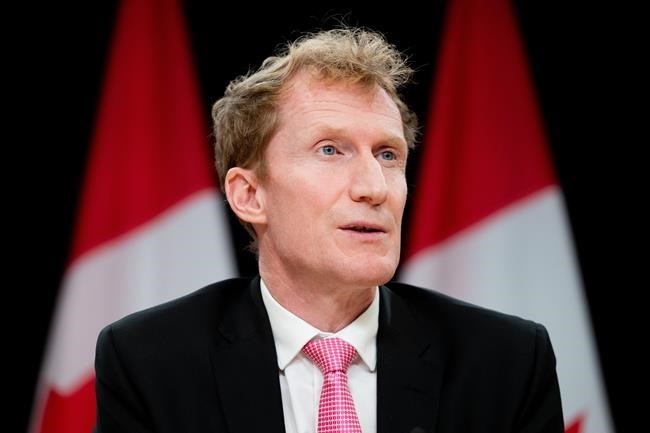Ottawa is offering a lifeline to people fleeing an escalating civil war in Sudan if they have relatives in Canada who agree to financially support them.
Immigration Minister Marc Miller says this new humanitarian pathway is for both Sudanese citizens and other foreign citizens who lived in the northeastern African countrywhen conflict broke out in mid-April.
The program applies to people who are either a child, grandchild, parent, grandparent or sibling to a Canadian citizen or permanent resident.
Those relatives have to agree to financially support them, though Ottawa has not said how much money this will require.
People must apply for the program and complete the typical security and biometric screening used for visa applicants, such as fingerprinting.
Duelling militias began a civil war in Sudan this spring that has caused some five million people to flee, including many who were already refugees from neighbouring countries.
A week ago, the United Nations Office on Genocide Prevention asked countries to speak out about what it calls rising, ethnically motivated violence in the country that includes indiscriminate killings and attacks against civilians.
Miller spoke about the situation in a Thursday press release announcing the new immigration measures.
"The ongoing conflict in Sudan, as well as the humanitarian situation on the ground, remains deeply concerning," Miller is quoted saying in the statement.
"Canada will continue to help those in need and uphold our humanitarian traditions as a country."
Sudan's war began in mid-April after months of tensions between military chief Gen. Abdel-Fattah Burhan and commander Gen. Mohammed Hamdan Dagalo of the paramilitary Rapid Support Forces or RSF.
Both generals led a military coup in October 2021 that derailed Sudan's short-lived transition to democracy following a popular uprising that forced the removal of President Omar al-Bashir in April 2019.
The conflict in Sudan has wrecked the country and killed up to 9,000 people as of October, according to the United Nations. However, activists and doctors' groups say the real toll is far higher.
More than seven million people were forced out of their homes, including more than 1.5 million who have sought refuge in neighboring countries, according to the UN figures.
Chad received more than 500,000 refugees, mostly from Sudan's western region of Darfur, where the RSF has largely taken control.
The fighting spread this month to the Jazeera province of Sudan. It had been a safe haven for families displaced by the fighting, which the UN says is most intense around the capital, Khartoum.
Canada has previously allocated $165 million in humanitarian aid for those affected by the conflict, and also fast-tracked immigration applications and waived fees for certain people who have fled.
This report by The Canadian Press was first published Dec. 28, 2023.
— With files from The Associated Press.
Dylan Robertson, The Canadian Press




